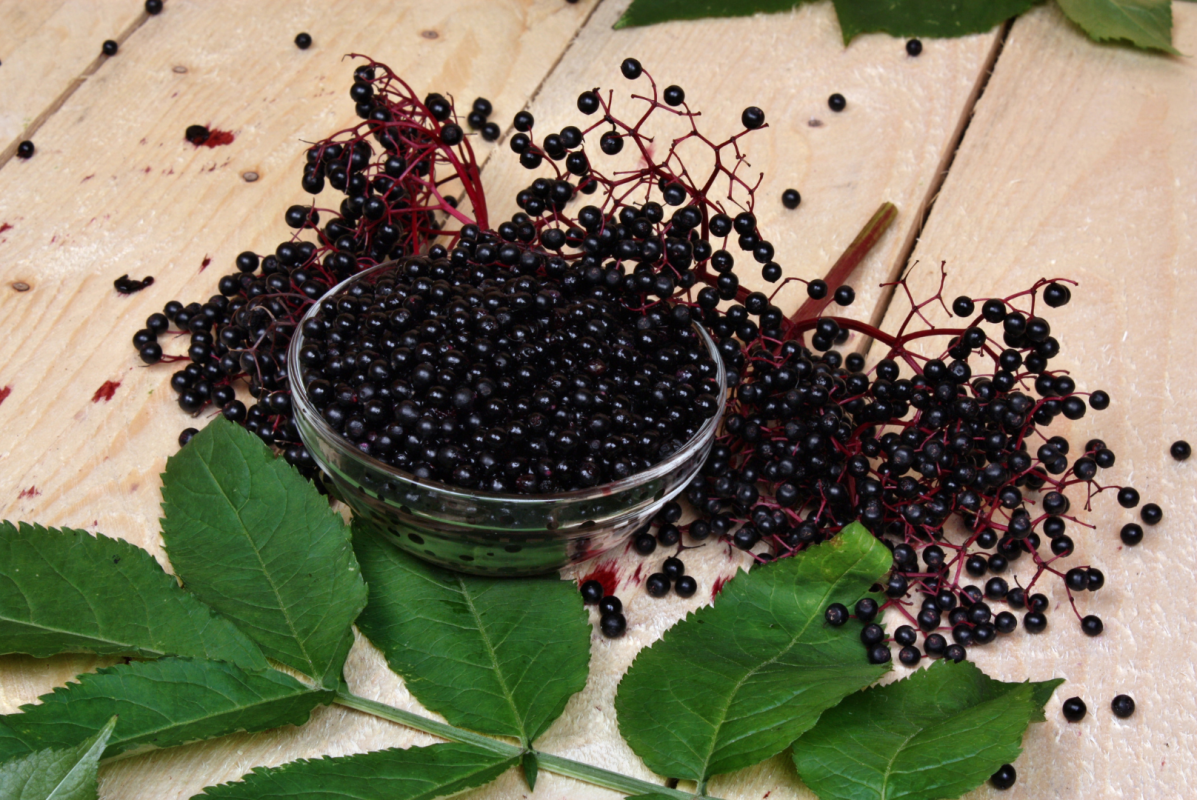Elderberry, Plant Medicine
Elderberry Unveiled: A Comprehensive Exploration of Botanical Wellness and Immune Support
In the realm of plant medicine, where nature’s pharmacy unfolds its myriad treasures, Elderberry (Sambucus) emerges as a beloved ally, offering a symphony of health benefits, a touch of tradition, and a burst of natural goodness.
As we embark on this botanical journey, we explore the enchanting world of Elderberry, delving into its rich history, unpacking its health benefits, examining potential risks, and uncovering the diverse ways plant medicine enthusiasts can incorporate this berry into their wellness routines.
The Historical Tapestry of Elderberry
Elderberry, with its clusters of tiny, dark purple jewels, has graced the landscapes of Europe, North America, and Western Asia for centuries. Traditionally, Native Americans, Egyptians, and medieval Europeans recognized and revered the healing properties of Elderberry. Today, its legacy endures, and plant medicine enthusiasts have rekindled their interest in this botanical gem for its potential to boost immunity and promote overall well-being.
The Bounty of Nutrients
What makes Elderberry a darling of the plant medicine world is not just its delicious taste but the rich array of nutrients it harbors. Packed with antioxidants, vitamins (notably C and B6), and essential minerals like iron and potassium, Elderberry is a nutritional powerhouse that supports the body’s natural defenses. As believers in the wisdom of plant medicine, we recognize the importance of harnessing the natural bounty that Elderberry provides.
Health Benefits of Elderberry
1. Immune System Support
Elderberry is renowned for its immune-boosting properties. Its high vitamin C content, combined with antioxidants like flavonoids, contributes to a robust immune response. Plant medicine enthusiasts often turn to Elderberry during cold and flu seasons to fortify their defenses.
2. Antioxidant Richness
The dark pigments in Elderberries signal a wealth of antioxidants, which combat oxidative stress in the body. These antioxidants may help reduce inflammation, protect against chronic diseases, and contribute to overall cellular health.
3. Respiratory Health
Elderberry has been traditionally used to alleviate respiratory conditions such as coughs and congestion. Its anti-inflammatory properties may help soothe irritated airways, providing relief during times of respiratory discomfort.
4. Heart Health
The anthocyanins in Elderberries have been associated with cardiovascular benefits. These compounds may help lower blood pressure, reduce cholesterol levels, and support heart health, making Elderberry a heart-smart addition to plant medicine regimens.
5. Antiviral Properties
Research suggests that Elderberry may possess antiviral properties, inhibiting the replication of certain viruses. While further studies are needed to fully understand its potential, this has contributed to the berry’s reputation as a natural ally against viral infections.
Navigating Risks and Considerations
While Elderberry stands as a beacon of botanical wellness, it’s essential to approach its usage with informed consideration. Some potential risks and considerations include:
1. Cyanogenic Glycosides
Elderberries contain small amounts of cyanogenic glycosides, which can release cyanide. However, proper preparation methods, including cooking, effectively neutralize these compounds. Consuming commercially available and properly processed Elderberry products minimizes this risk.
2. Allergic Reactions
As with any plant, individuals may have allergic reactions to Elderberry. It’s advisable to start with small amounts to gauge tolerance, especially for those with known plant allergies.
3. Potential Interaction with Medications
Individuals taking medications, particularly immunosuppressants or medications affecting the immune system, should consult with healthcare professionals before incorporating Elderberry into their routine.
Diverse Uses and Culinary Delights
Elderberry’s versatility extends beyond its medicinal applications. Plant medicine enthusiasts can enjoy the berry’s goodness in various forms:
1. Elderberry Syrup
A popular choice for immune support, Elderberry syrup is not only delicious but also a convenient way to incorporate this botanical into daily life. Whether homemade or store-bought, the syrup is a sweet addition to teas, yogurts, or even drizzled over pancakes.
2. Elderberry Tinctures
Tinctures offer a concentrated form of Elderberry, allowing for easy and customizable dosing. A few drops under the tongue or added to beverages provide a convenient way to enjoy the plant’s benefits.
3. Elderberry Tea
Brewing Elderberry tea is a soothing ritual that combines the warmth of a beverage with the potential health benefits of the plant. Enthusiasts can explore blends with complementary herbs for a delightful cup of botanical comfort.
4. Elderberry-infused Recipes
Incorporate Elderberries into jams, jellies, and desserts for a delightful twist. The culinary possibilities are vast, offering a creative avenue for plant medicine enthusiasts to explore the berry’s flavors.
Holistic Benefits
Elderberry, with its storied past and impressive nutritional profile, stands as a testament to the enduring power of plant medicine. As stewards of well-being, we embrace the holistic benefits Elderberry brings to the table – a natural ally in fortifying the body, supporting immune health, and weaving a tapestry of botanical wellness.
In the ever-expanding universe of plant medicine, Elderberry shines as a star, inviting enthusiasts to savor its delights and bask in the embrace of nature’s bounty. Let the journey with Elderberry be a celebration of tradition, science, and the enduring connection between humanity and the healing wonders of the plant kingdom.

